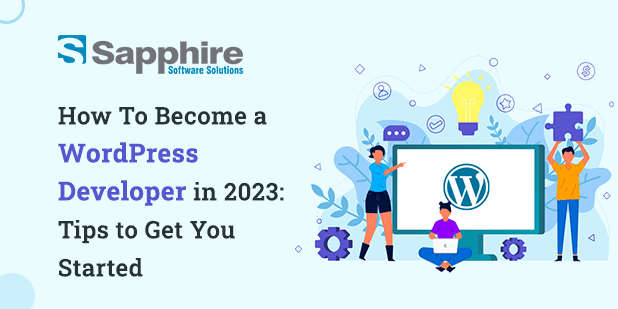The App Store and Google Play each have 4.4 million applications available for download, and together they serve 14 billion mobile phones throughout the globe. If you are interested in releasing a mobile application, one of the most crucial choices you will need to make is whether or not to use native vs cross-platform development.
The decision between the two options has long-term repercussions regarding cost, time, and functionality. In this piece, we’ll look at both possibilities and discuss the pros and cons of each one.
Pros And Cons of Native Vs Cross-Platform Development:
â€Follow this article, We will share the pros and cons of native vs cross-platform development.
What Is Native App Development?
Developing a mobile app exclusive to a particular operating system or platform is referred to as “native app development.” The app was developed using programming languages and techniques only compatible with a specific operating platform or device. For instance, you may design a native app for Android using Java or Kotlin, and for iOS applications, you can choose Swift and Objective-C as your programming languages.
Native applications have a reputation for providing a fantastic user experience since they often have a high level of performance. Because the aesthetics are customized to the platform’s user experience, the user experience is also improved. However, since they need to perform parallel development for two venues, entrepreneurs are worried about the high expense of developing native apps. Check out, the best native app development services in India.
Pros Of Native App Development:
Broad Functionality:
You will have access to any application programming interface (API) and tool made available by the platform you are currently working on. Programmers are free to use the new app in whatever way they see fit since there are no restrictions on how they may do so technically.
Better Store Support:
Because it offers superior performance and speed, a native app is simpler to publish and often receives a higher ranking in the platform’s app store.
Increased Scalability:
Apps designed to run in their native environment have a higher propensity to be more scalable than apps designed to run in a different climate, given the flexibility with which resources may be managed and the variety of tools that are accessible.
High Performance and Great UX:
The excellent performance may be attributed to the interaction that takes place directly between the code and the underlying resources. In general, native applications provide a superior user experience (UX) that is more consistent with their platform.
Cons Of Native App Development:
Costly:
When building native applications for both iOS and Android might be expensive. This necessitates the deployment of two teams operating on distinct platforms.
Time Consuming:
Native app development is time-consuming since work completed for one platform cannot be reproduced for another. Instead, a different team must work on the alternative version.
What Is Cross-Platform App Development?
Cross-platform development refers to the process of producing an app that is compatible with many platforms. This is accomplished via the use of technologies such as React Native, Xamarin, and Flutter, where programs may be released on both Android and iOS.
While cross-platform development saves time and money, you risk losing quality. It is challenging to create an app that performs ideally on several platforms, and the app will need an extra abstraction layer, decreasing speed.
Cross-platform development will reduce costs and save time, which will appeal to startups. However, you should be aware that altering the app may be more challenging than what the framework allows.
Our team has over four years of expertise in constructing cross-platform applications. The applications include Jacks Flight Club (iOS and Android), Daily Burst, and more (iOS, Android). If you find the top cross-platform App development services in India
Pros Of Cross-Platform App Development:
Cheaper in Price:
You will only need to assemble a single development team to build an app compatible with several operating systems. As a result, you will get a reduction in the cost of the development.
Faster Development:
To design an app compatible with many platforms, one must go through the development cycle once.
Single Code Base:
One code base is produced because the app is developed using a unique cross-platform development tool.
Cons Of Cross-Platform App Development:
Slower App:
Due to the need for an extra abstraction layer and rendering process, the cross-platform app is noticeably slower than its native equivalent.
Restricted functionality:
It may be challenging for developers to access smartphone features such as the microphone, camera, and geolocation in ways suitable for a native app.
Limited UX:
Cross-platform programs can’t use the native UX components of their target platforms. Because of this, it cannot provide the same user experience (UX) typical of the forum. Â
What To Consider When Selecting an App Development Method?
Application Complexity:
Cross-platform development is an excellent option if you’re developing an app that only displays information retrieved from the network. However, if it needs intensive processing or access to low-level APIs like Bluetooth, you should opt for native development.
Cost:
Native development creates high-performance applications, but it might be expensive to implement. If you have a restricted budget, cross-platform development is the best option for you. As just one codebase is produced for an app that runs on Android and iOS, you’ll save between 30 and 40 percent. Search google’s top native development company or cross-platform development company and check the estimate of the cost.
Development Time:
You’ll want to deploy an MVP app as quickly as feasible in some projects. In this case, you should explore cross-platform development. You need not work on two versions of the app. Instead, just one development cycle is required to deploy an app for both Android and iOS.
UI/UX:
Choosing cross-platform will severely restrict the UI/UX of the app. Native development is the solution if you want amazing aesthetics and an engaging user experience. When building in a native environment, developers have access to UI/UX components.
Native Or Cross-Platform App?
Your selection will significantly affect the app’s cost, timeline, and user reception. Consider the factors above before making a choice.
Summary:
Native and cross-platform development has distinct pros and cons. Ultimately, the decision between the two relies on the project’s needs and the developers’ abilities.
Native applications continue to provide the most incredible user experience and performance. Although they are more expensive, you will be reassured by the reduced failure rates and superior graphics.
Cross-platform applications are simple and fast to develop, but delivering a comparable user experience on each platform requires more work.
Still unsure whether to pursue native or cross-platform development? Get expert guidance from our staff.
FAQs:
What are the advantages and disadvantages of native vs cross-platform App development?
If you compare two programs, one native and one cross-platform, with the same functionality, the native application will run somewhat more quickly. However, this relies on a variety of circumstances. However, these performance changes are often minimal, particularly for basic applications.
Is cross-platform better than native?
Regarding user experience, native apps have the advantage over cross-platform applications. When you use native features for the user interface, thus, the user experience will be smooth. Each operating system has its design aesthetic and native components.
What are the pros of developing cross-platform apps?
Cross-platform applications have the advantage of being accessible to a larger audience. These applications may be built on many platforms yet operate together flawlessly, enabling companies to target their consumers on numerous platforms rather than just one.
What are the pros and cons of native apps?
Pros of Native App
– Speed Work offline Provide a distinct appearance and feel Observe aspect ratios
Cons of Native App
– Protracted downloading procedure No adaptability Expensive development Time-consuming development They need regular updates
















![Pros And Cons of Native Vs Cross-Platform Development [Latest!]](https://www.sapphiresolutions.net/blog/wp-content/uploads/2022/12/Pros-And-Cons-of-Native-Vs.-Cross-Platform-Development-Latest.png)

![How to Become a PHP Developer in 2024? [6 Steps to Follow]](https://www.sapphiresolutions.net/blog/wp-content/uploads/2022/12/How-to-Become-a-PHP-Developer-in-2023.png)












